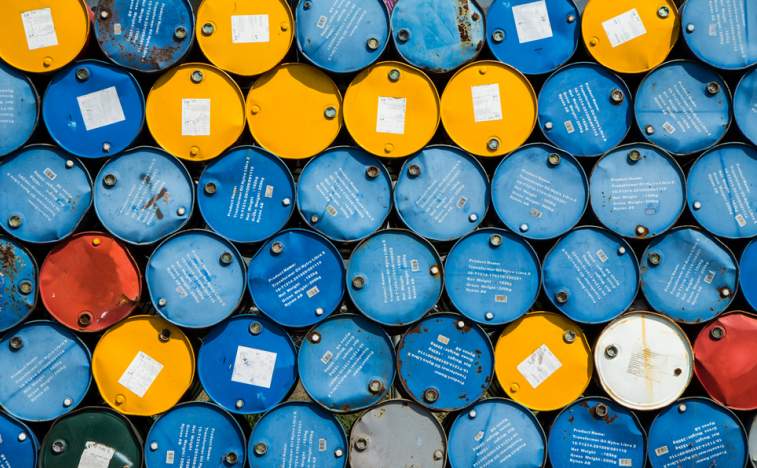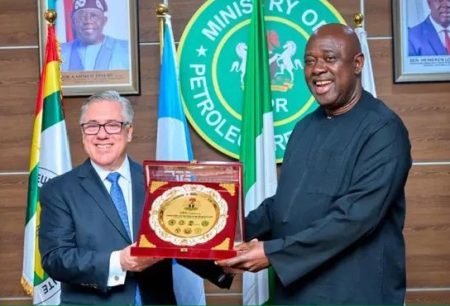14 May 2015, Lagos – In the last two weeks, getting to Apapa has become like passing a camel through the eye of a needle. Since the latest fuel crisis started a couple of weeks ago, a greater portion of the roads leading to the seaports, including the Apapa-Oshodi Expressway, is often taken over by tankers queuing up to load petroleum products. Other vehicles and road users are expected to navigate their way through whatever available space that is left. This has resulted in gridlock that stretches for many kilometres and may last a whole day.
 The President, Association of Nigerian Licensed Customs Agents, Alhaji Olayiwola Shittu, lamented the slow pace of trucking operations caused by the gridlock.
The President, Association of Nigerian Licensed Customs Agents, Alhaji Olayiwola Shittu, lamented the slow pace of trucking operations caused by the gridlock.
He said the port was operating at half its capacity as truck drivers were unable to access the main area to load containers and return the empties.
He called on the Federal Government to relocate the tank farms to a more spacious place as their continued presence along the busy road constituted danger to the ports and other businesses in the event of any explosion.
He said, “The impunity with which the tanker drivers have taken over the access roads is like they have become a law unto themselves. They tell us to be patient with them until they can get fuel. What kind of request is that? All the tank farms should be relocated out of Apapa because they came to meet the ports.
“Those who approved the tank farms to be sited in Apapa should also be prosecuted because the danger of an explosion which could sink the entire ports is always present. It is like we are sitting on a keg of gunpowder.”
Shittu also lamented the increase in the fares of trucking operations as a result of the traffic.
He said although the truck owners and drivers had been considerate, payment still had to be made to cover the delay of holding the trailers down.
The Chairman, Association of Maritime Truck Owners, Chief Remi Ogungbemi, told our correspondent that the traffic situation had brought trucking operations to a standstill, noting that it had become difficult for truck owners to break even.
He said, “It has been terrible; drivers are passing through hell to access the ports. Most drivers are not happy working; they spend several days on the queue, just to enter the ports. It is discouraging. Although our transport charges have remained unchanged, where the situation is dire, the owner of the goods sometimes decides to pay an additional amount to the drivers to cushion the effect of the hardship they are passing through.
“Unfortunately, we can’t do anything about the welfare of the drivers while they wait. Presently, there is no place for the drivers to relax or ease themselves while they wait to gain access to the ports. That is why we are working on how to put the necessary infrastructure in place to ease their pain.”
The President of the Shippers Association of Lagos State, Rev Jonathan Nicol, described the traffic situation at Apapa as hopeless with seemingly no lasting solution in sight, noting that going to Apapa had become a harrowing experience for everyone.
Nicol, who called a state of emergency in Apapa, sympathised with the truck drivers whose income he said was determined by the number of containers they moved to and from the ports.
He said, “If this situation is not handled quickly, there would soon be congestion at the ports. For three days now, I have been unable to get to my office at Apapa because it means I have to go there by 5.30am if I want to make it there. Even up to Kirikiri Road, petroleum tankers now use it as an access road, through Wilmar to get to the bridge at Tincan. Containers that would have left the port within two or three hours, now take days to be loaded.”
Nicol also called for the restriction of the loading of petroleum products to 6pm – 6am daily.
He said the restriction would allow for uninterrupted movement of commuters and vehicles during the day.
He also alerted the government to the inherent danger of petroleum tankers parked on the bridges for days while on the queue to load fuel.
He said, “At the rate we are going, there is a risk of Apapa Bridge collapsing. The bridge is not a park for trucks; but now, you have over 150 trucks parked on the bridge, some of them loaded with about 35,000 tonnes of fuel.”
Nicol also lamented the increase in the cost of trucking operations caused by the traffic. He said importers were forced to pay extra in order to alleviate the hardship experienced by the drivers who spend days waiting to get into or out of the port.
He called for the construction of a link bridge between Tolu -Ajegunle and Marine Road. This, he said, would go a long way in reducing the suffering of the road users.
He said, “One cannot blame the truck owners and drivers for the increase in transportation costs because if they don’t make a round trip, they cannot maintain their trucks and pay their employees. It costs money to maintain a truck.
“The Federal Government and Lagos State government are both making so much money from the ports and should be able to provide a solution. Even the security agencies are now exploiting the situation; the drivers complain that they are forced to pay money if they want security agents to clear the route for them.”
The Executive Secretary of the Nigerian Shippers Council, Mr. Hassan Bello, said the council had been working with various government agencies such as the Federal Roads Maintenance Agency, Ministry of Works, and the Department of Petroleum Resources for a lasting solution to the crisis.
He called for the development of other modes of transportation such as the railway and ferry service to reduce the traffic on the road.
He added that the council had spoken to the tank farm owners and the shipping companies on the importance of operating holding bays for the tanker and trailer drivers.
Bello said, “There is no reason why the tankers and trucks should all be on the road at the same time. Once there are holding bays, the drivers will be called up to the ports using an automated system when it is their turn to load fuel or containers. Some of the shipping companies have begun to comply and soon, the Shippers Council will begin the inspection of these holding bays. Any stakeholder discovered not to have created a holding bay will be sanctioned appropriately.”
– Comfort Oseghale, Punch



